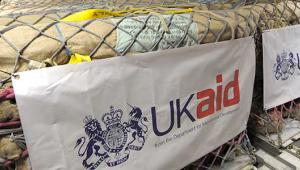768x424-Downtown-lagos-nigeria-iStock_000048812356_Full.jpg

Nigeria, Africa's biggest economy, was one of the CDC's top investment destinations in 2015, along with other emerging markets like China, South Africa and India, despite a supposed refocusing on the world's poorest countries.
In new report published today, the NAO assessed the workings of the CDC Group, a private company owned by the UK’s Department for International Development.
It comes less than a week after plans were announced to scale up aid funds channelled through the firm by at least four times, to £6bn.
The proposals were described as “simply astounding” by critics, who highlighted the CDC’s excessive pay for senior staff, prolific links to tax havens and focus on investing in luxurious projects that had little benefit for the world’s poorest.
In its last audit of the CDC in 2008, the NAO had also criticised the company for paying over-the-top salaries, while it said DFID was not able to demonstrate how the firm was reducing poverty.
Auditors said today there had been improvements since they last examined the CDC: average pay has been reduced to £90,000 from £123,000; there is a greater focus on the poorest countries; and the firm now measures the development impact of its investments as well as financial returns.
However, the latter two come with caveats. According to the organisation’s 2015 annual review, almost half of its portfolio is still invested in four countries: India, China, South Africa and Nigeria.
That means the fund is focused on the world’s two fastest growing major economies, and the two largest economies in Africa. This seems at odds with DFID’s commitment to spend 50% of its budget on fragile states. The CDC’s fifth biggest investment recipient is listed as ‘pan Africa’.
The investments by the CDC in these economies in 2015 include a fund called Actis to support its focus on “greenfield retail, residential and office real estate” development. Actis previously built a luxury shopping mall in Kenya, known as Garden City, with CDC support, which caused the original outcry among campaigners.
CDC said it invested in the Actis fund to create jobs in construction. Job creation is the only way the CDC measures actual development impact – all its other efforts to monitor this are based on projections, rather than actual results.
It mainly invests in infrastructure and financial institutions, although it also focuses to a much lesser extent on agribusiness, health, construction and education.
In 2015, 484 businesses that CDC had invested in (77% of portfolio) reported on their job creation. The majority (53%) reported no change or a reduction in jobs, while 46% reported job creation. Overall, the NAO said a net 24,673 jobs were created last year – more than double the 9,379 created in 2013.
The CDC also calculates it indirectly helped to create over one million jobs with its investments, based on a methodology created for the CDC “by experts”.
Amyas Morse, head of the NAO, said: “It remains a significant challenge for CDC to demonstrate its ultimate objective of creating and making a lasting difference to people’s lives in some of the poorest places.”
Areas of improvement that were flagged by the NAO include a reduction of the amount of finance delivered indirectly through funds – campaigners found that much of these indirect investments were channelled through the world’s most notorious tax havens.
The CDC is making “good progress” in increasing its direct investments in businesses through equity or debt. Where 100% of the total portfolio used to be delivered indirectly through funds, 31% is now invested directly.
However, the firm’s 2015 accounts still show a plethora of holdings in tax havens, including the Cayman Islands, Mauritius, Guernsey and Barbados.
A second reading of the bill to quadruple – with the option to double that figure again to £12bn with parliamentary approval – the amount of aid money the UK government channels through the CDC will take place tomorrow.












